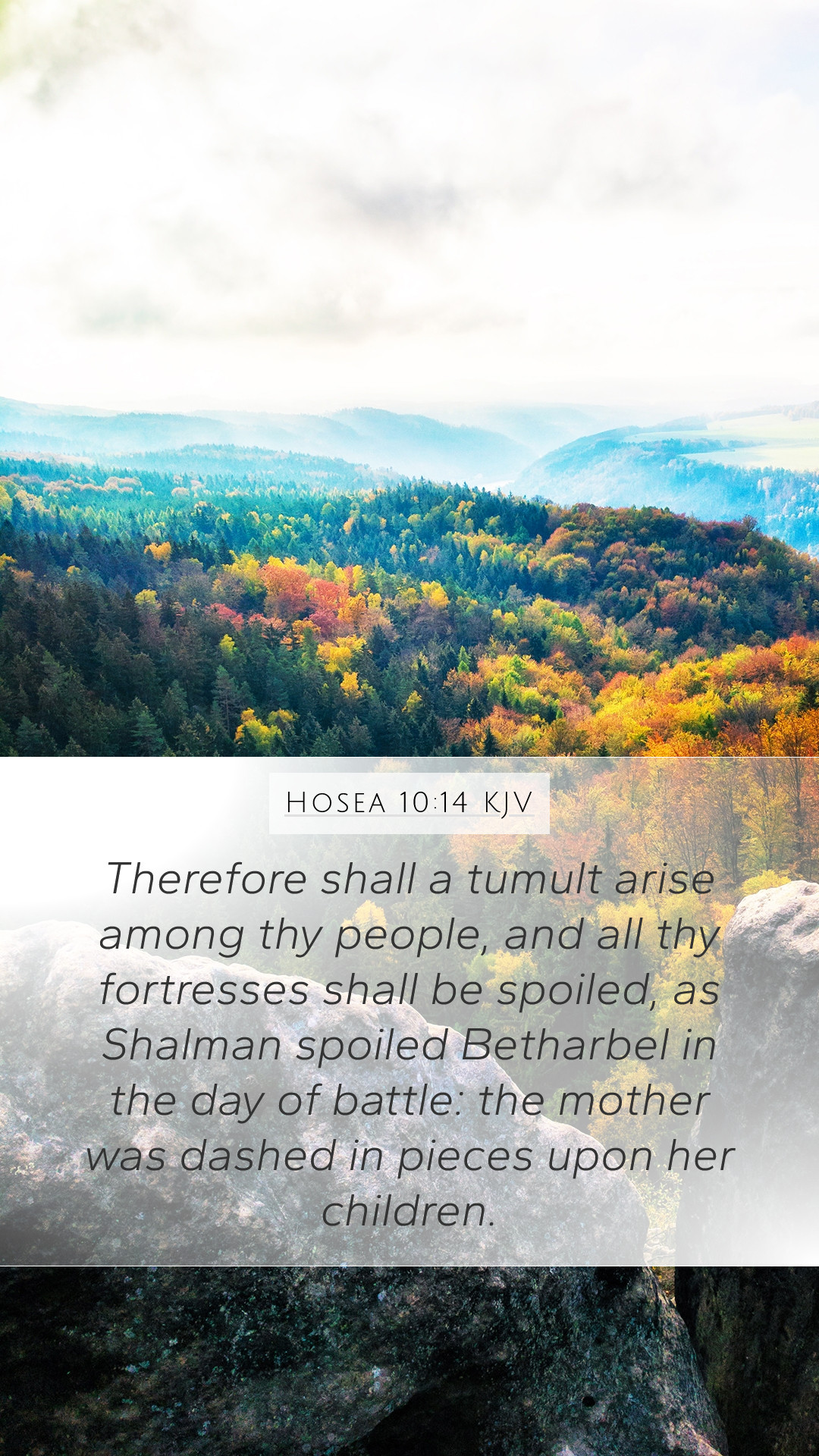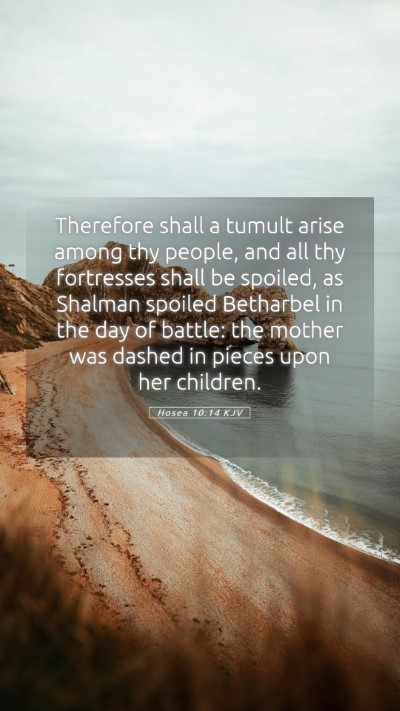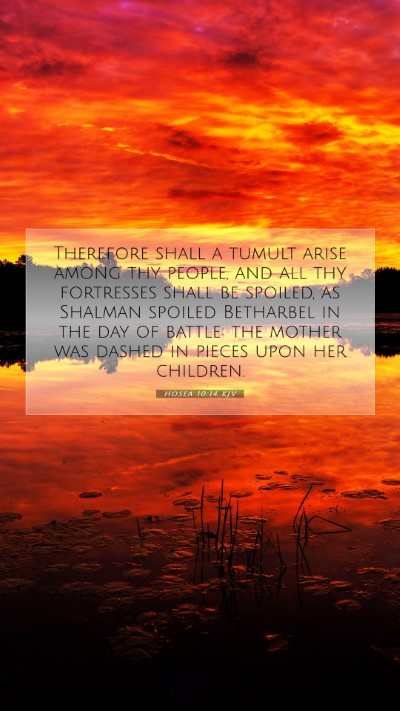Old Testament
Genesis Exodus Leviticus Numbers Deuteronomy Joshua Judges Ruth 1 Samuel 2 Samuel 1 Kings 2 Kings 1 Chronicles 2 Chronicles Ezra Nehemiah Esther Job Psalms Proverbs Ecclesiastes Song of Solomon Isaiah Jeremiah Lamentations Ezekiel Daniel Hosea Joel Amos Obadiah Jonah Micah Nahum Habakkuk Zephaniah Haggai Zechariah MalachiHosea 10:14 Meaning
What is the meaning of Hosea 10:14?
Therefore shall a tumult arise among thy people, and all thy fortresses shall be spoiled, as Shalman spoiled Betharbel in the day of battle: the mother was dashed in pieces upon her children.
Hosea 10:14 Bible Verse Meaning
Bible Verse Meaning: Hosea 10:14
The verse Hosea 10:14 states, "Therefore shall a tumult arise among thy people, and all thy fortresses shall be spoiled, as Shalman spoiled Beth-arbel in the day of battle: the mother was dashed in pieces upon her children." This verse conveys a stark message of impending destruction and judgment, drawing parallels with historical events to emphasize its seriousness.
Summary of Interpretations
-
Judgment and Turmoil:
Matthew Henry highlights the theme of judgment against the people of Israel, emphasizing that their unfaithfulness to God has led to internal conflict and external threats. This turmoil signifies the consequences of their actions and choices.
-
Historical Context:
Albert Barnes provides insight into the historical context of the verse, referencing the destruction of Beth-arbel as a cautionary example. Shalman, likely referring to a king like Shalmaneser, signifies how enemy armies would invade and devastate a nation, an event that would strike fear into the hearts of those who hear this prophecy.
-
Parental Grief:
Adam Clarke reflects on the emotive imagery within the text, particularly how the metaphor of a mother being dashed in pieces upon her children illustrates the deep anguish and irreversible consequences of warfare. Such visual language communicates the gravity of the situation and the tragic outcomes of sin and rebellion against God.
Understanding Scripture
This verse is a powerful reminder of the repercussions of straying from the path of righteousness. The tumult mentioned in Hosea 10:14 serves as a warning, urging believers to remain faithful and aware of the spiritual battles that can arise from disobedience.
Key Themes from Hosea 10:14
-
Divine Judgment:
The foretelling of tumult indicates that God’s judgment, a recurring theme in prophetic literature, is imminent in the face of Israel's rebellion and idolatry.
-
Symbolism of War:
The imagery of destruction relates to the broader context of nations experiencing God’s wrath. The metaphor serves as a vital biblical exegesis tool for understanding God’s relationship with His people.
-
The Impact of Sin:
This verse illustrates the severe impact of sin not only on individuals but on families and communities, highlighting the collectivism of societal sin.
Applications for Daily Life
Understanding Scripture like Hosea 10:14 is essential for modern believers. It encourages introspection about our personal and communal commitments to faithfulness. The historical and cultural contexts provided in commentaries offer valuable insights for applying these lessons to contemporary life.
Cross References
- Jeremiah 51:13 - Discusses the downfall of Babylon, echoing themes of divine judgment.
- Amos 1:1 - Provides context to the prophetic background and societal issues relevant to Hosea's message.
- Isaiah 13:10 - Speaks about the devastation of nations and serves as a commentary on impending destruction.
Conclusion
Hosea 10:14 serves not only as a historical warning but as an enduring call to righteousness. By studying this verse within its broader scriptural context and applying its lessons to our lives, we deepen our understanding of divine principles and the importance of loyalty to God.
For those engaged in Bible study groups or online Bible study, this verse offers fertile ground for discussion and reflection. It provides a framework for exploring the implications of faithfulness and the consequences of turning away from God.
Using Bible study tools and resources, believers can further delve into Bible study topics related to prophecy, divine judgment, and personal faith.


